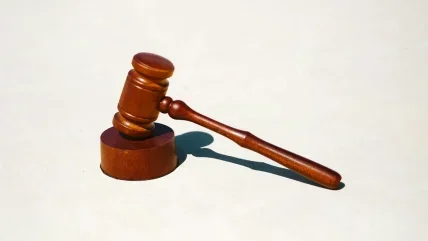
Teva has been fined €462.6m by the European Commission (EC) for abusing its market position to delay competition for its multiple sclerosis drug, Copaxone.
The Commission said that Teva artificially extended Copaxone’s patent protection and systematically spread misleading information about a rival product to obstruct its market entry.
Israel-based Teva is a global pharmaceutical company with subsidiaries in the European Economic Area.
Its leading drug, Copaxone, is prescribed for multiple sclerosis and contains glatiramer acetate, for which Teva held a basic patent until 2015.
After unannounced inspections in October 2019, the EC initiated proceedings against Teva in March 2021, issuing a Statement of Objections in October 2022.
The Commission’s investigation revealed that Teva had abused its position in the glatiramer acetate markets across Belgium, Czechia, Germany, Italy, the Netherlands, Poland, and Spain.
The firm’s actions were aimed at delaying competition and extending Copaxone’s exclusivity by obstructing the market entry and uptake of low-cost glatiramer acetate alternatives.
Teva allegedly misused patent procedures to extend the drug’s protection by filing multiple secondary patents just before its expiration. This created legal uncertainty, which hindered competitors’ market entry, the Commission said.
Additionally, the Israeli company launched a disparagement campaign against a rival glatiramer acetate medicine, spreading false claims about its safety and efficacy despite official approvals.
The campaign targeted key stakeholders to slow the competitor’s market access across several member states.
European Commission competition policy executive vice-president Margrethe Vestager said: “Today’s decision to impose an antitrust fine on Teva for disparagement and misuse of the patent system reaffirms the Commission’s commitment to competition enforcement in the pharmaceutical sector.
“With today’s decision, the Commission contributes to keeping drugs affordable, preserving choice of treatment and fostering innovation, to the benefit of EU patients and national healthcare systems.”
The EC said that Teva’s conduct, lasting four to nine years depending on the member state, likely prevented price reductions, thereby negatively impacting public health budgets.
The fine was announced under Article 102 of the Treaty on the Functioning of the European Union (TFEU), which outlaws the abuse of a dominant market position.
In response, Teva plans to appeal the Commission’s decision and fine. The company disagreed with the ruling and expressed disappointment.
In September, the company agreed to pay the City of Baltimore, Maryland $80m to settle claims related to its role in worsening the city’s opioid crisis.






